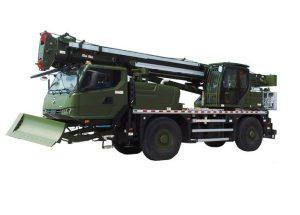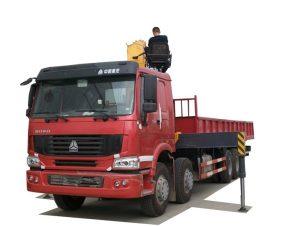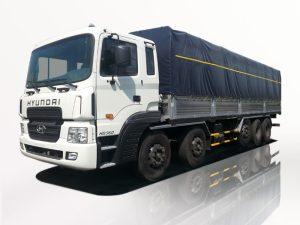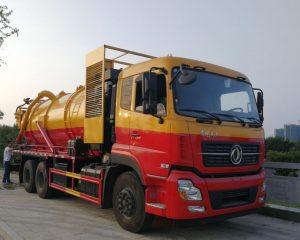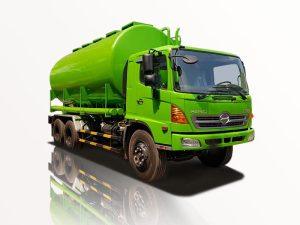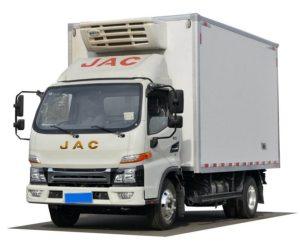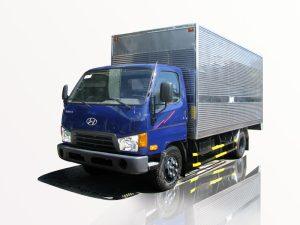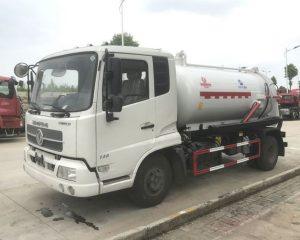Monday to Saturday - 8:00 -17:30
Understanding 20 Ton Vehicles: Types, Uses, and Benefits
Introduction
20 ton vehicles are essential assets in various industries, including construction, logistics, and transportation. Their capacity allows them to handle heavy loads efficiently, making them a crucial part of supply chains. In this article, we will delve into the specifics of 20 ton vehicles, including their types, applications, advantages, and key considerations for choosing the right model. We aim to provide a comprehensive guide that will benefit industry professionals and anyone interested in these heavy-duty machines.
What is a 20 Ton Vehicle?
A 20 ton vehicle is a type of commercial vehicle designed to carry a maximum load of 20 metric tons or approximately 44,000 pounds. These vehicles come in various forms, including trucks, trailers, and specialized transport vehicles. Their robust construction and powerful engines make them ideal for transporting heavy materials and equipment over short or long distances.
Types of 20 Ton Vehicles
- Flatbed Trucks: Versatile trucks with a flat, open bed to transport goods of various shapes and sizes.
- Box Trucks: Enclosed vehicles that protect cargo during transit, often used for moving goods like furniture and equipment.
- Dump Trucks: Designed for transporting loose materials like gravel, sand, and demolition debris, featuring a hydraulic lift.
- Tankers: Used for carrying liquids such as fuel, chemicals, or potable water, often with specialized compartments.
Main Uses of 20 Ton Vehicles
20 ton vehicles serve a wide array of industries, ensuring the effective transport of goods and materials. Below are some of the primary applications:
Construction Industry
In construction, 20 ton vehicles like dump trucks are commonly used to transport aggregates, sand, and construction debris. Their ability to quickly unload materials at job sites increases productivity and keeps projects on schedule.
Logistics and Supply Chain
Logistics companies utilize 20 ton vehicles for efficient distribution of goods. They can transport heavy shipments, ensuring timely delivery across short and long distances. Flatbed and box trucks are particularly popular for their flexibility.
Agriculture
In agriculture, these vehicles are used to transport fertilizers, feed, and other large quantities of products. Their robust construction allows for the transport of heavy loads, which is essential during peak seasons.
Mineral and Heavy Equipment Transport
20 ton vehicles are crucial for transporting heavy equipment and raw materials, such as minerals—especially in mining and quarrying operations. Specialized trailers can handle the weight and ensure safe transport.
Benefits of Using a 20 Ton Vehicle
The use of 20 ton vehicles comes with several advantages:
High Load Capacity
These vehicles can accommodate substantial weight, making them indispensable for industries requiring the transport of heavy items.
Versatility
20 ton vehicles are adaptable to various applications. Whether transporting construction materials or agricultural products, their utility spans many sectors.
Durability
Built to withstand harsh conditions, 20 ton vehicles are engineered for longevity and consistent performance even in challenging environments.
Increased Efficiency
With their ability to carry greater loads, these vehicles improve operational efficiency by reducing the need for multiple trips, saving time and fuel costs.
Key Features to Consider When Choosing a 20 Ton Vehicle
When selecting a 20 ton vehicle, several features should be considered to ensure it meets your specific needs:
Engine Power and Performance
A powerful engine is crucial for overcoming heavy loads and maintaining speed on various terrains. Assess horsepower and torque specifications to match your requirements.
Body Type
Choose a body type that suits your primary use. A flatbed may be ideal for construction, while a box truck could be better for transporting household goods.
Safety Features
Look for vehicles with advanced safety features, such as anti-lock brakes, stability control, and rearview cameras, which enhance operational safety.
Fuel Efficiency
A fuel-efficient vehicle can significantly reduce operating costs, especially for businesses that rely heavily on transportation.
Maintenance and Support
Consider the availability of service and parts for the model you choose. Regular maintenance is key to the longevity of your vehicle.
Cost Considerations
Investing in a 20 ton vehicle requires careful budget planning. Here are some cost factors to consider:
Purchase Price
The upfront cost of 20 ton vehicles varies based on features, brand, and model. New vehicles typically come with warranties and modern technology, while used vehicles may offer savings but require more maintenance.
Operating Costs
Beyond the purchase price, consider insurance, fuel, maintenance, and potential financing costs to get a clear picture of total ownership expenses.
Resale Value
Some vehicles hold their value better than others. Research potential resale values to understand how much you might recover when it’s time to upgrade.
Practical Tips for Operating a 20 Ton Vehicle
Efficient operation of a 20 ton vehicle takes skill and awareness. Here are some practical tips:
Pre-Trip Inspections
Always perform a thorough pre-trip inspection. Check tire pressure, brakes, lights, and fluid levels to ensure safety and compliance with regulations.
Load Distribution
Evenly distribute loads to maintain vehicle stability and prevent accidents. Knowledge of load limits is essential for safe transport.
Plan Routes Wisely
Consider height and weight restrictions when planning routes. Use GPS systems tailored for commercial vehicles to avoid obstacles and restrictions.
Stay Updated with Regulations
Always stay updated with local, state, and federal regulations regarding commercial vehicle operation, including weight limits and required permits.
Future of 20 Ton Vehicles
The transportation industry is evolving, and 20 ton vehicles are no exception. With advancements in technology, including electric and hybrid models, these vehicles are becoming more eco-friendly. Innovations in automated systems also promise improved safety and efficiency in operations.
Electric and Hybrid Models
The introduction of electric and hybrid 20 ton vehicles is transforming the market. These models offer lower emissions and reduced fuel costs, appealing to environmentally conscious businesses.
Smart Vehicle Technology
Smart technologies, such as telematics and fleet management systems, are making logistics more efficient. They provide real-time data tracking, helping companies optimize routes and monitor fuel consumption.
FAQ Section
1. What is the maximum weight a 20 ton vehicle can carry?
A 20 ton vehicle can typically carry a maximum load of around 20 metric tons or 44,000 pounds, depending on the model and configuration.
2. What types of industries use 20 ton vehicles?
20 ton vehicles are used in various industries, including construction, logistics, agriculture, and mining, for transporting heavy materials and equipment.
3. How do I ensure the safety of my 20 ton vehicle on the road?
Perform regular inspections, maintain proper load distribution, and stay informed about regulations and necessary permits to ensure safety during operation.
4. Are there electric options available for 20 ton vehicles?
Yes, the market is seeing a growing number of electric and hybrid models designed for better fuel efficiency and lower emissions.
5. What features should I look for in a 20 ton vehicle?
Important features to consider include engine power, body type, safety features, fuel efficiency, and maintenance support.
6. How can I reduce operating costs for a 20 ton vehicle?
Plan efficient routes, maintain a regular service schedule, and select a fuel-efficient model to help minimize long-term operating costs.


